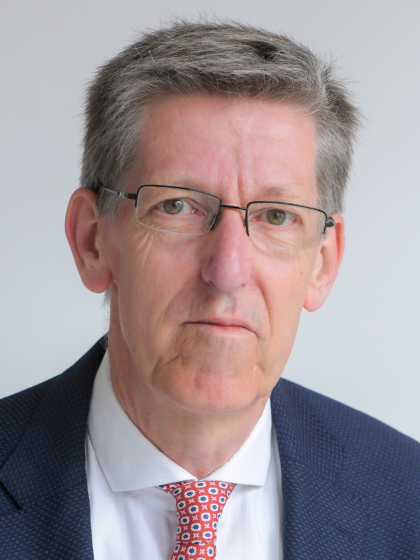Successful energy transition requires international electricity market

The realization of energy transition is a socially important, but costly, exercise. To keep the costs of this transition to a minimum, it is important to uphold the basic principles of the organization of the electricity market. These are conclusions drawn by Machiel Mulder, professor of Regulation of Energy Markets at the University of Groningen, on the basis of research on the effects of sustainable energy on electricity market forces. The research was funded by the Netherlands Organisation for Scientific Research (NWO), EnergieNederland, TenneT, NetbeheerNederland, VEMW and the Dutch consumer association (de Consumentenbond), with support from the Authority for Consumers & Markets (ACM) and Statkraft.
The Netherlands has undertaken to increase the proportion of renewable energy in its total electricity consumption from the current 15% to approximately 60% by 2030. Cost management is crucial if this highly ambitious goal is to be achieved. According to Mulder, it is essential to embrace the principles of electricity market forces. ‘The electricity market has evolved into its current form over the past 20 years and seems to be functioning well: more competition, lower prices, innovation in the consumer market and sufficient investment have all led to a reliable electricity supply. The electricity market has become increasingly international, resulting in lower generation costs, more competition and greater supply security.’
Local energy systems counter-productive
Mulder is arguing the case for an integrated international electricity market. ‘Removing the barriers to international trade in electricity and choosing international instead of national or local objectives will help us to keep the costs of the energy transition to a minimum. Local energy systems may seem attractive, but they increase the costs of energy transition and are therefore less successful. By trying to find sustainable solutions for their own energy demands, regions are actually increasing the bill for society as a whole. On an international market, everyone can benefit from peaks in production, for example from windmills in a neighbouring country, while a region that uses only the energy it generates itself will miss out on this opportunity and end up paying more.’

Flexible German market as example
A region that wants to supply its own energy will face higher costs for fluctuations in the supply of wind and solar power than it would in an international market. Mulder: ‘Experience in Germany, where the energy transition is already fairly advanced, shows that the electricity market is perfectly able to cope with increased fluctuation in the supply of energy from renewable sources. The market system provides enough flexibility without the need to invest in electricity storage.’
Market incentives make subsidies more effective
To keep the costs of the energy transition in check, it is also important to incorporate market incentives in subsidy schemes for sustainable energy wherever possible, says Mulder. ‘In the past, guaranteed compensation for producing renewable energy, irrespective of the price of electricity, proved to be a good incentive, but this is not sustainable. Schemes like this are expensive, lead to unnecessary profits for people who invest in solar panels, for example, and interfere with the energy market. A commitment system like the one introduced in England is a good example of a system that keeps the costs of sustainable energy to a minimum. Suppliers are obliged to supply a specific percentage of sustainable energy, so look for the cheapest suppliers themselves. This not only causes prices to drop, but also means that more sustainable energy is realized for the same amount of subsidy. In the Netherlands, the SDE+ subsidy scheme encourages the reduction of the cost of sustainable energy.’
Reducing CO2 emissions
The ultimate aim of energy transition is to reduce CO2 emissions. National policy designed to stimulate the energy transition has a direct impact on all those taking part in the trading system through the European Emissions Trading System (ETS): it becomes cheaper for electricity companies and the chemical industry, for example, to reduce their emissions. Energy transition therefore provides enough financial leeway to do more about reducing emissions than strictly necessary under the terms of the trading system.
Mulder: ‘The simplest way for governments, companies and citizens to realize this reduction in emissions is to buy up emission rights and cancel them without using them. This increases scarcity in the market for emission rights, causing the price of CO2 rights to rise and prompting more action to reduce emissions somewhere within the ETS. In this way, we will not only ensure that more of the energy we consume is sustainable energy, but we will reduce CO2 emissions too.’
More information
- Contact: Prof. Machiel Mulder
- This publication is the result of a multidisciplinary research project on the effects of sustainable energy on energy market forces. The research was funded by the Netherlands Organisation for Scientific Research (NWO) with co-funding from EnergieNederland, TenneT, NetbeheerNederland, VEMW and the Dutch consumer association (de Consumentenbond), and support from the Authority for Consumers & Markets (ACM) and Statkraft.
- Download the full publication
________________________________________________
> More news from the Faculty of Economics and Business
> FEB experts in the media


More news
-
10 February 2026
‘Regeneration starts where courage meets imagination’
-
09 December 2025
Are robots the solution?
